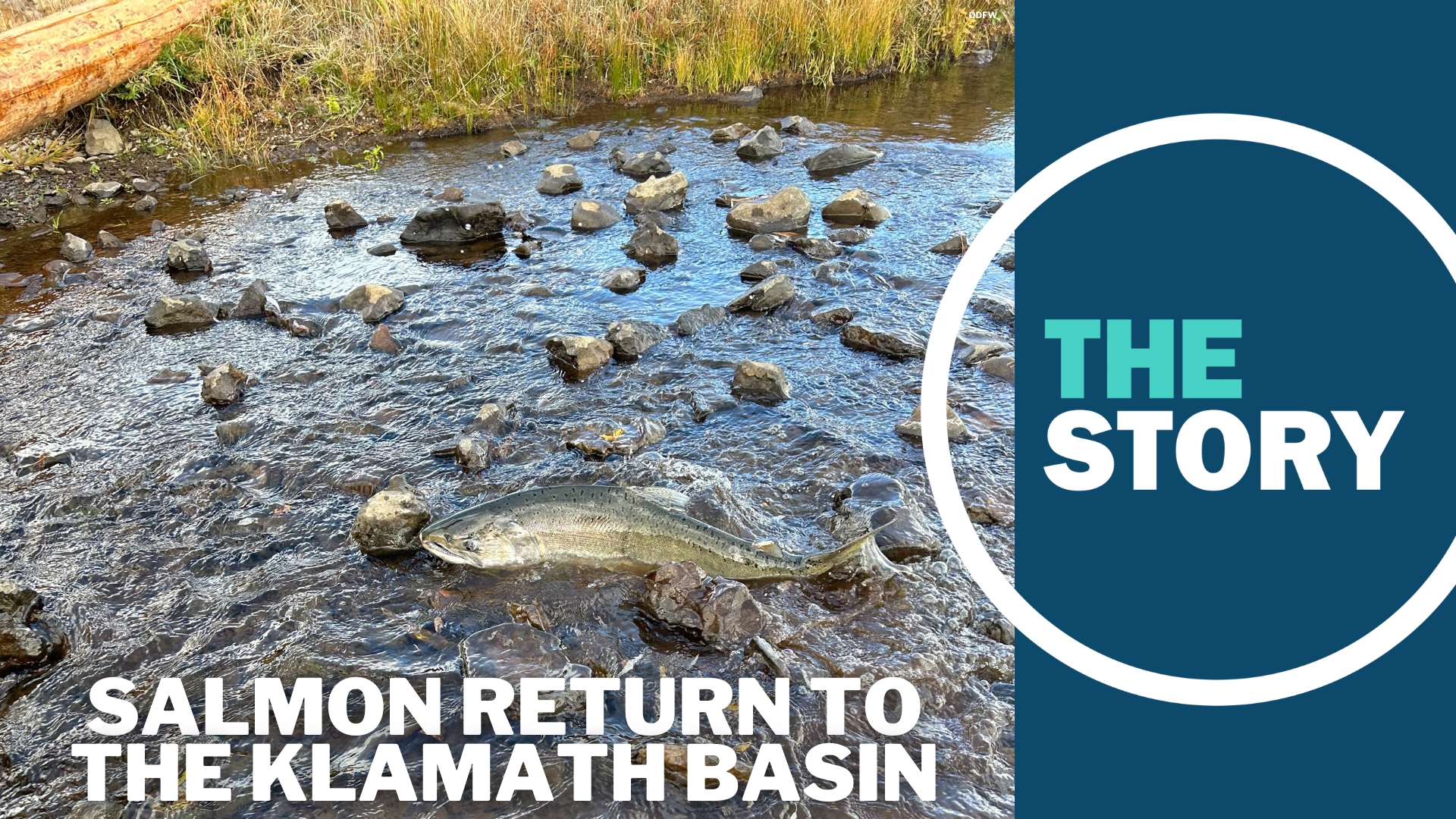KLAMATH, Calif. — For the first time in over a century, salmon have been spotted in tributaries of the Klamath River in Oregon. It's a positive sign for wildlife officials after the removal of four aging hydroelectric dams along the river just weeks ago.
These are among the first anadromous fish to return to the Oregon part of the Klamath Basin since the early 1900s. An anadromous fish lives between fresh and saltwater, migrating from the ocean to freshwater for spawning.
That migration for Chinook salmon was blocked by the installation of four hydroelectric dams along the Klamath River: The Iron Gate dam, the Copco 1 and Copco 2 dams, and the J.C. Boyle dam.
Construction of the first of those dams in 1912 blocked salmon migration upriver. Researchers noted the return of fall-run Chinook salmon past the first of the dams in California on Oct. 3, just a day after the removal project's completion. Now, officials say they've gone beyond the last of the former dams, well inside the Oregon border.
The Oregon Department of Fish and Wildlife estimated that the salmon traveled about 230 miles from the Pacific Ocean to reach this Klamath River tributary.
“This is an exciting and historic development in the Klamath Basin that demonstrates the resiliency of salmon and steelhead,” said ODFW Director Debbie Colbert. “It also inspires us to continue restoration work in the upper basin. I want to thank everyone that has contributed to this effort over the last two decades.”
The Klamath River dam removals represent the largest such project in U.S. history, and came about as part of a national movement to return rivers to their natural flow.
Most of all, it was a major victory for local tribes. The Klamath and Yurok tribes, among others, have been working alongside ODFW to monitor the restoration project. They'll be helping to monitor the populations of Chinook, Coho salmon, steelhead and Pacific lamprey populations as they return to habitat above the dams.
“The return of our relatives the c’iyaal’s is overwhelming for our tribe. This is what our members worked for and believed in for so many decades,” said Roberta Frost, Klamath Tribes Secretary. “I want to honor that work and thank them for their persistence in the face of what felt like an unmovable obstacle. The salmon are just like our tribal people, and they know where home is and returned as soon as they were able."

